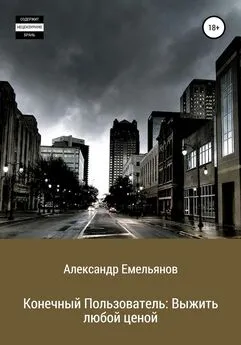Пользователь - o 3b3e7475144cf77c
- Название:o 3b3e7475144cf77c
- Автор:
- Жанр:
- Издательство:неизвестно
- Год:неизвестен
- ISBN:нет данных
- Рейтинг:
- Избранное:Добавить в избранное
-
Отзывы:
-
Ваша оценка:
Пользователь - o 3b3e7475144cf77c краткое содержание
o 3b3e7475144cf77c - читать онлайн бесплатно полную версию (весь текст целиком)
Интервал:
Закладка:
awakened, I don't know how, and lying in the dark I distinctly heard a voice saying: 'Freddi is
in Dachau.' I waited a long time, thinking he might appear, or that I might hear more, but
nothing happened. I had no reason to think of Dachau-it seems a very unlikely place—so
naturally I am interested to follow it up and see if I am what they call 'psychic' "
Hugo agreed that he, too, would be interested; his interest increased when Lanny slipped
several hundred-mark notes into his pocket, saying, with a laugh: "My mother and stepfather
have paid much more than this to spiritualist mediums to see if they could get any news of our
friend."
IV
Hugo also had been to the Parteitag. To him it was not merely a marvelous demonstration
of loyalty, but a call to every Parteigenosse to see that the loyalty was not wasted. Those million
devoted workers gave their services without pay, because they had been promised a great
collective reward, the betterment of the lot of the common man in Germany. But so far they
had got nothing; not one of the promised economic reforms had been carried out, and indeed
many of the measures which had been taken were reactionary, making the reforms more remote
and difficult. The big employers had got a commanding voice in the control of the new shop
councils—which meant simply that wages would be frozen where they were, and the workers
deprived of all means of influencing them. The same was true of the peasants, because prices were
being fixed. "If this continues," said Hugo, "it will mean a slave system, just that and nothing
else."
To Lanny it appeared that the young sports director talked exactly like a Social-Democrat;
he had changed nothing but his label. He insisted that the rank and file were of his way of
thinking, and that what he called the "Second Revolution" could not be more than a few weeks
off. He pinned his hopes upon Ernst Rohm, Chief of Staff and highest commander of the
S.A., who had been one of the ten men tried for treason and imprisoned after the Beer- hall
Putsch; a soldier and fighter all his life, he had become the hero of those who wanted the
N.S.D.A.P. to remain what it had been and to do what it had promised to do. The Führer must
be persuaded, if necessary he must be pushed; that was the way it was in politics—it was no
drawing-room affair, but a war of words and ideas, and if need be of street demonstrations,
marching, threats. None knew this better than Hitler himself.
Lanny thought: "Hugo is fooling himself with the Chief of Staff, as earlier he fooled himself
with the Führer." Ernst Rohm was a homosexual who had publicly admitted his habits; an ignorant
rough fellow who rarely even pretended to social idealism. When he denounced the
reactionaries who were still in the Cabinet, it was because he wanted more power for his
Brownshirts and their commander. But it wasn't Lanny's business to hint at this; he must find
out who the malcontents were—and especially whether any of them were in power at Dachau.
Such men want money for their pleasures, and if they are carrying on a struggle for power they
want money for that. There might be a good chance of finding one who could be paid to let a
prisoner slip through the bars.
Their conference was a long one, and their drive took them into the country; beautiful level
country, every square foot of it tended like somebody's parlor. No room for a weed in the
whole of the Fatherland, and the forests planted in rows like orchards and tended the same way.
It happened to be Saturday afternoon, and the innumerable lakes around Berlin were gay with
tiny sailboats, the shores lined with cottages and bathhouses. The tree-lined paths by the roads
were full of Wandervogel, young people hiking—but it was all military now, they wore S.A.
uniforms and their songs were of defiance. Drill-grounds everywhere, and the air full of sharp
cries of command and dust of tramping feet. Germany was getting ready for something. If you
asked what, they would say "defense," but they were never clear as to who wished to attack them
—right after signing a solemn pact against the use of force in Europe.
Another way in which Hugo resembled the Social-Democrats rather than the Nazis—he hated
militarism. He said: "There are two ways the Führer can solve the problem of unemployment;
one is to put the idle to work arid make plenty for all, including themselves; the other is to
turn them over to the army, to be drilled and sent out to take the land and resources of other
peoples. That is the question which is being decided in the inner circles right now."
"Too bad you can't be there!" remarked Lanny; and his young friend revealed what was in the
depths of his mind. "Maybe I will be some day."
V
Seine Exzellenz, Minister-Präsident General Göring, was pleased to invite Mr. and Mrs. Lanny
Budd to lunch at his official residence. He didn't ask them to bring their paintings, and Lanny
wasn't sorry about it, for somehow he couldn't see the Sister of Mercy in company with a lion
cub. He doubted very much if Seine Exzellenz was being deceived as to the real reason for
Lanny's coming to Berlin; and anyhow, the' Commander of the German Air Force was having his
own art made to his own order—a nude statue of his deceased wife, made from photographs
and cast in solid gold!
At least that was what the Fürstin Donnerstein had told Irma. There was no stopping the
tongues of these fashionable ladies; the Fürstin had poured out the "dirt," and Irma had
collected it and brought it home. The good-looking blond aviator named Göring, after being
wounded in the Beerhall Putsch, had fled abroad and married a Swedish baroness; the lady was
an epileptic and her spouse a morphia addict. There could be no doubt about either of these
facts, for they had been proved in court when the baroness was refused custody of her son by a
former marriage. Later on, the lady had died of tuberculosis, and Göring, returning to Germany,
had chosen Thyssen and the former Crown Prince for his cronies, and the steel king's sister for
his "secretary"; the quotation marks were indicated by the Fürstin's tone as she said the last
word. It had been assumed that he would marry this Anita Thyssen, but it hadn't come off;
perhaps he had become too great—or too fat! At the moment Anita was "out," and the "in"
was Emmy Sonnemann, a blond Nordic Valkyrie who acted at the State Theater and could
have any role she chose. "But that doesn't exclude other "Damen" added the serpent's tongue of
Fürstin Donnerstein. "Vorsicht, Frau Budd!"
So Irma learned a new German word.
VI
The utility king's daughter had lived most of her life in marble halls, and wasn't going to be
awed by the livery of Göring's lackeys or the uniforms of his staff and self. The lion cub was
not for ladies, it appeared—and she didn't miss him. The great ebony table with gold curtains
behind it was really quite stunning; they made Irma think of Dick Oxnard's panels, and she
couldn't see why Lanny had made fun of them. Pink jackets and white silk pumps and
stockings for footmen—yes, but hardly in the daytime; and the General's medals seemed more
suited to a state dinner than a private luncheon.
However, the ex-aviator was very good company; he spoke English well, and perhaps wanted
to prove it. He did most of the talking, and laughed gaily at his own jokes. There was nobody
else present but Furtwaengler and another staff officer, and needless to say they laughed at the
jokes and didn't tell any of their own. Apparently it was a purely social affair; not a word about
ransoms or hostages, Jews or concentration camps. No need for Lanny to say: "I hope you have
noticed, Exzellenz, that I have kept my agreement." The fact that he was here, being served cold-
storage plovers' eggs and a fat squab was proof enough that he had kept it and that his host
had made note of the fact.
The assumption was that the holder of eight or ten of the most responsible positions in the
"Third Reich" enjoyed nothing so much as sipping brandy and chatting with two idle rich
Americans; it was up to Lanny to play his role, and let it come up quite by accident that he and
his wife had visited Lausanne in the early days of the Conference on Arms Limitation, and
could tell inside stories about the prominent personalities there, including the German. This
led to the mention that Lanny had been on the American staff at Paris, and had met many of
the men, and had helped a German agent to escape to Spain. He knew leading members of
several of the French parties, including Daladier, the Premier, and he had visited in the homes
of some of the British Foreign Office set—yes, there could be no doubt that he was a young man of
exceptional opportunities, and could be very useful to a Reichsminister without Portfolio if he
happened to be well disposed! Not a word was spoken, but always there was floating in the air
the thought: "Why not take a chance, Exzellenz, and turn loose my Jewish Schieber-sohn?"
VII
Herr Reichsminister Joseph Goebbels was so gracious as to indicate his opinion that the work
of Marcel Detaze was suitable for showing in Germany; quite harmless, although not especially
distinguished. Lanny understood that he could expect no more for a painter from a nation
which the Führer had described as "Negroid." It was enough, and he wired Zoltan to come to
Berlin.
What did one do to obtain publicity with a gleichgeschaltete Presse? Lanny found out, even
before his friend arrived. A youngish, very businesslike gentleman called; one of those Berliners
who wear a derby hat, and on a hot day a vest-clip on which they may hang the hat, thus
preserving comfort and respectability at the same time. His card made him known as Herr
Privatdozent Doktor der Philosophie Aloysius Winckler zu Sturmschatten. In a polite
philosophical voice he informed Lanny that he was in position to promote the reputation of
Detaze—or otherwise. The Privatdozent spoke as one having both authority and
determination; he didn't evade or drop his eyes, but said: "Sie sind ein Weltmann, Herr
Budd. You know that a great deal of money can be made from the sale of these paintings if
properly presented; and it happens that I am a Parteigenosse from the early days, the
intimate friend of persons of great influence. In past times I have rendered them services and
they have done the same for me. You understand how such things go."
Lanny said that he understood; but that this was not entirely a commercial undertaking, he
was interested in making known the work of a man whom he had loved in life and admired
still.
"Yes, yes, of course," said the stranger, his voice as smooth and purring as that of a high-priced
motor-car. "I understand what you want, and I am in position to give it to you. For the sum of
twenty thousand marks I can make Marcel Detaze a celebrated painter, and for the sum of fifty
thousand marks I can make him the initiator of a new era in representational art."
"Well, that would be fine," said Lanny. "But how can I know that you are able to do these
things?"
Читать дальшеИнтервал:
Закладка:




